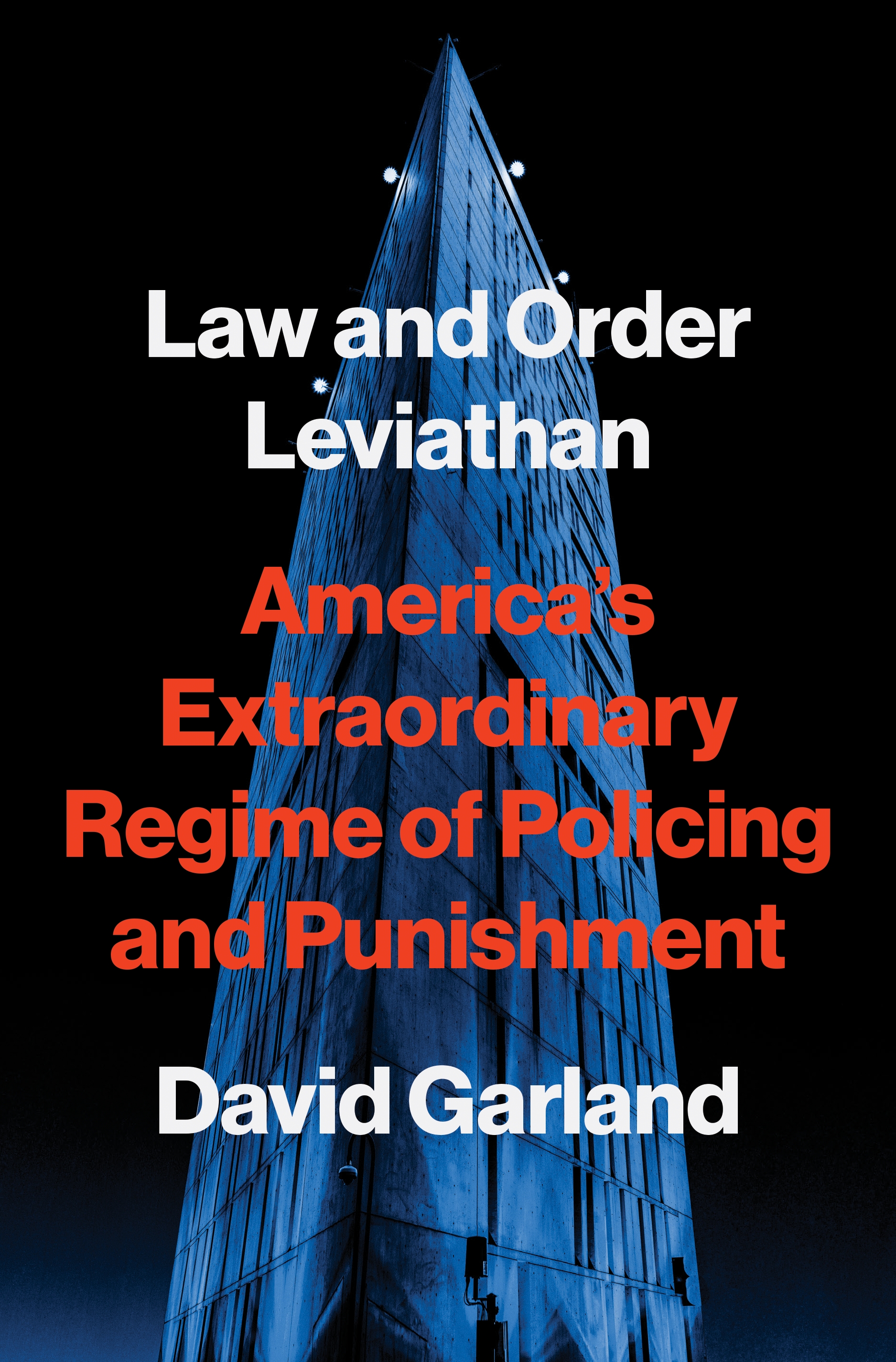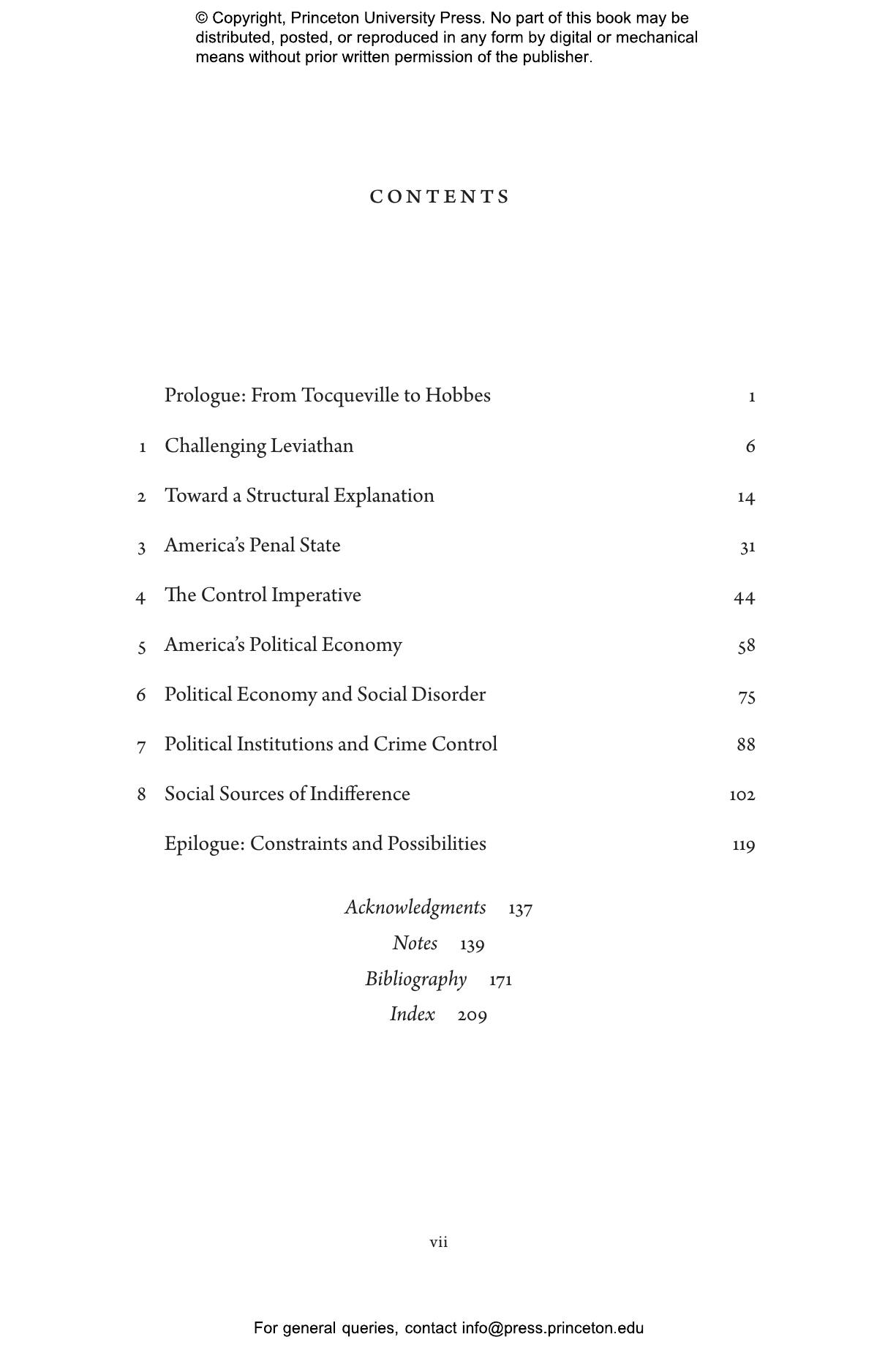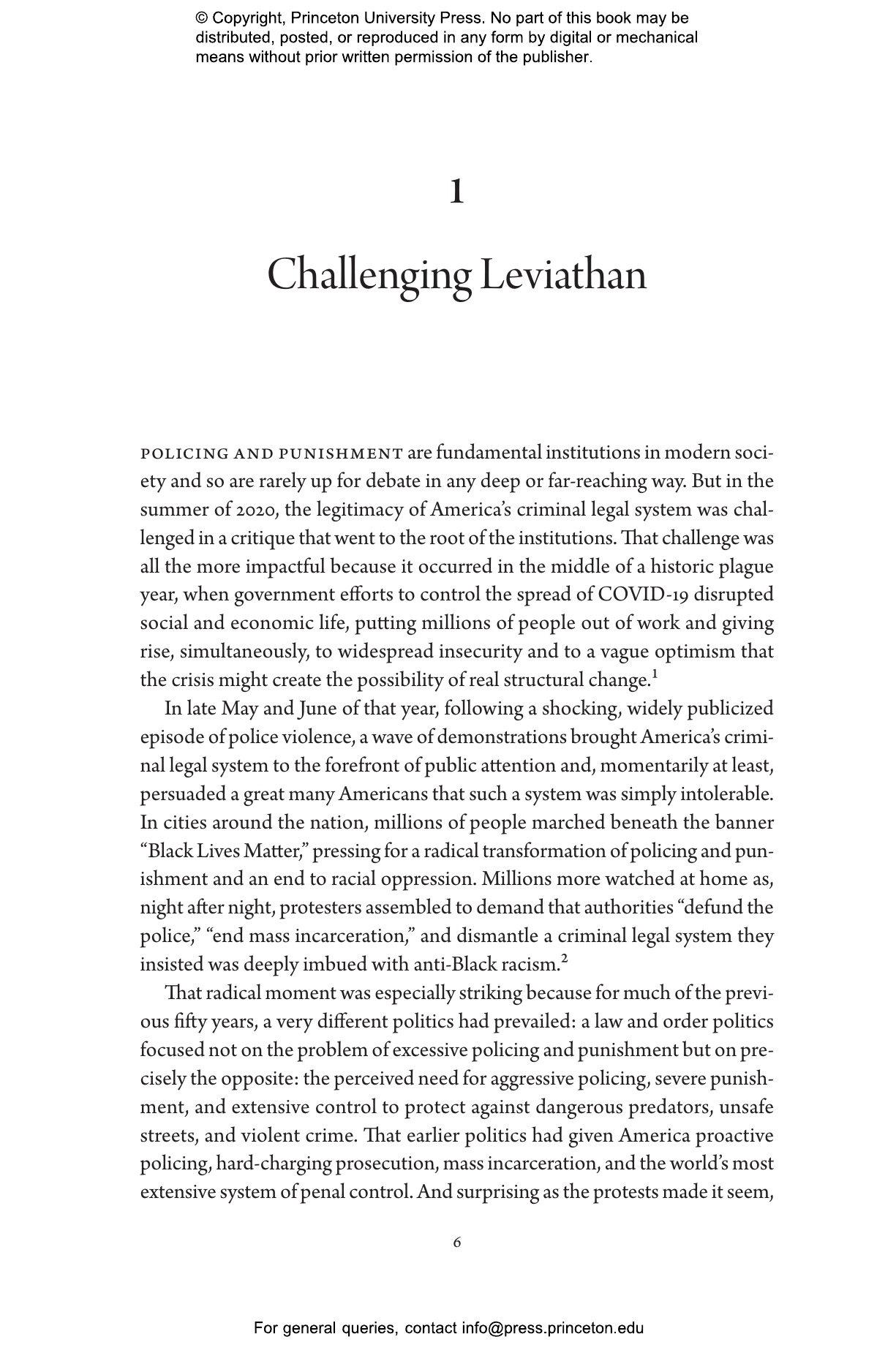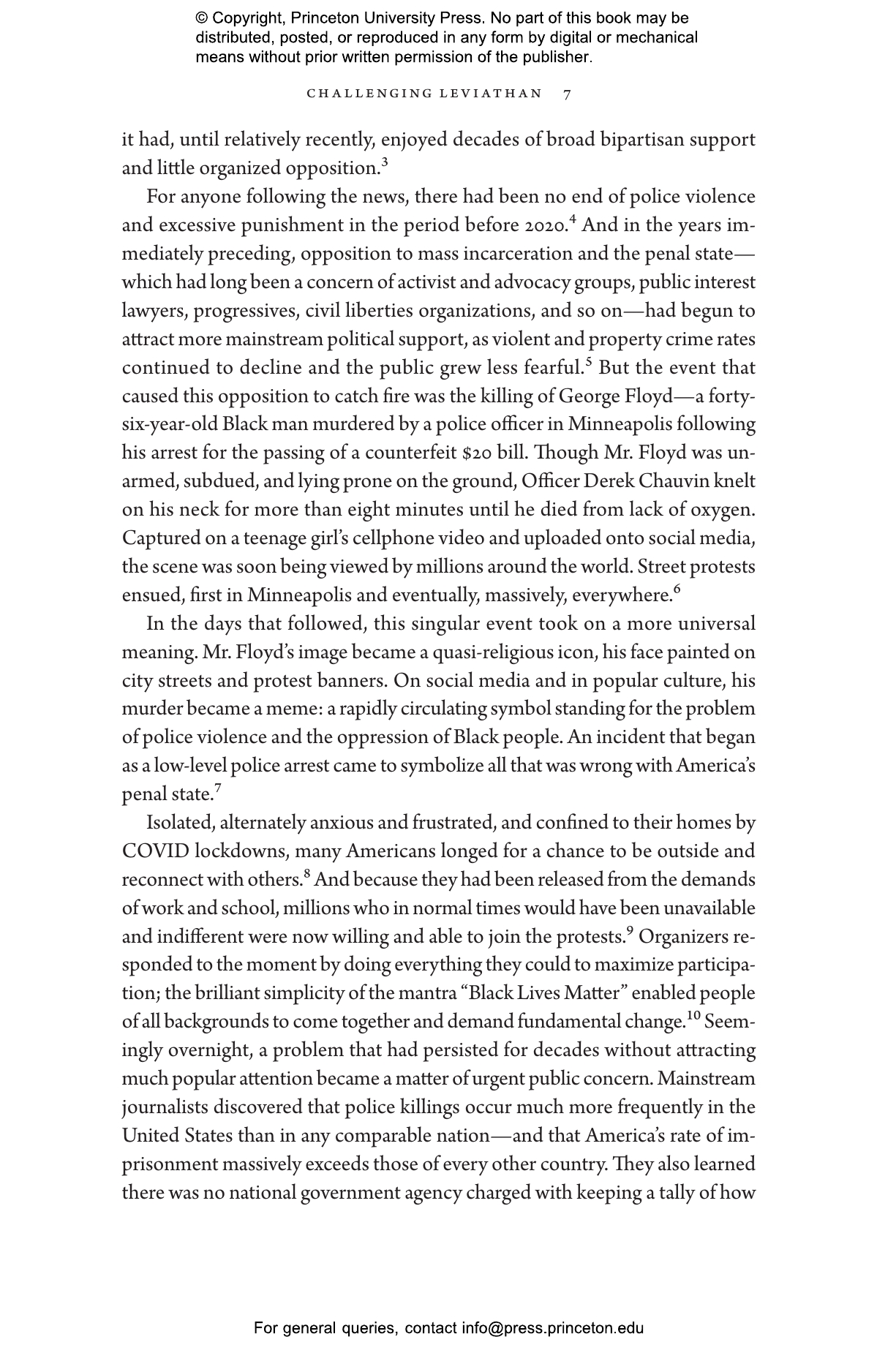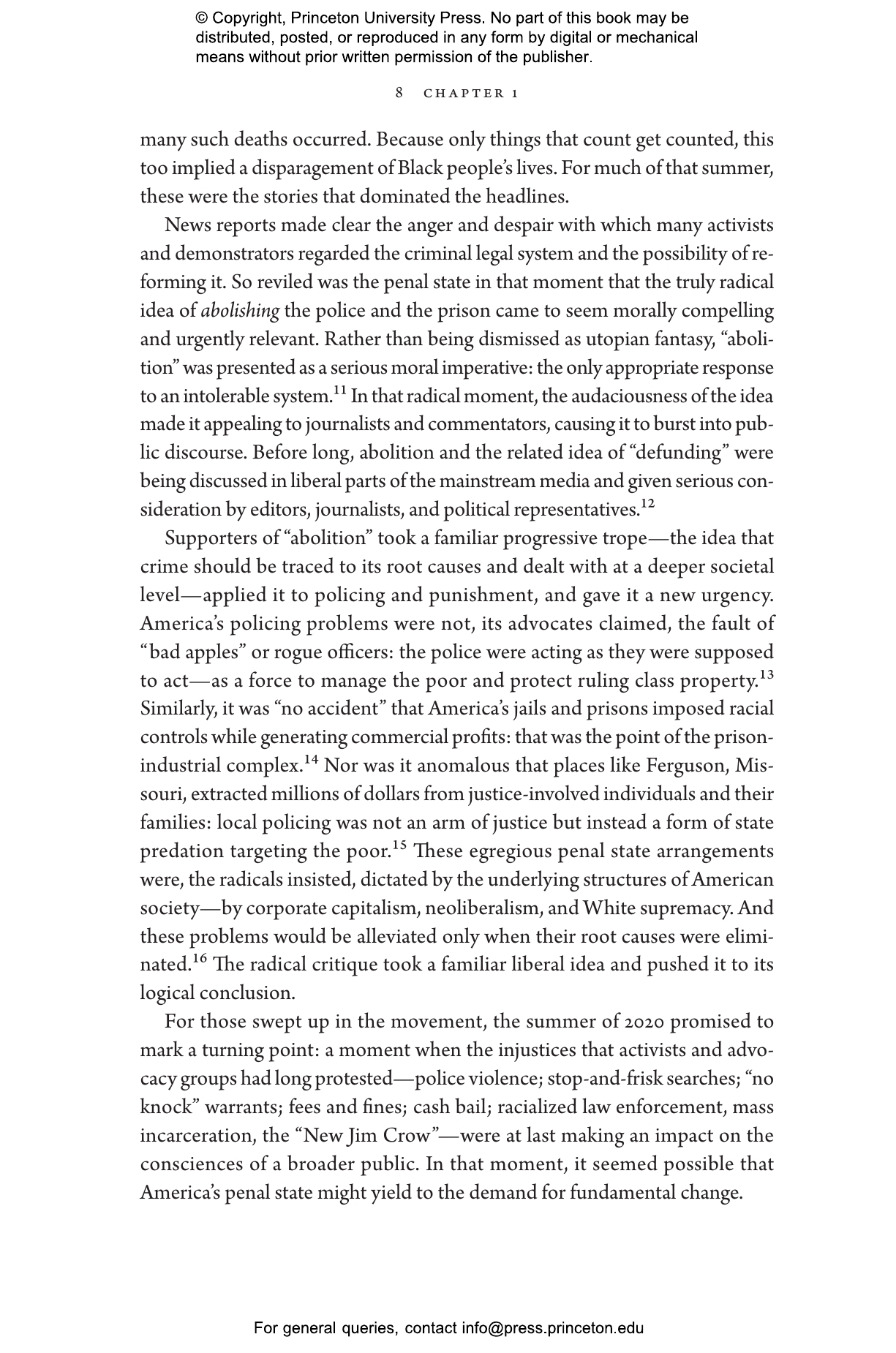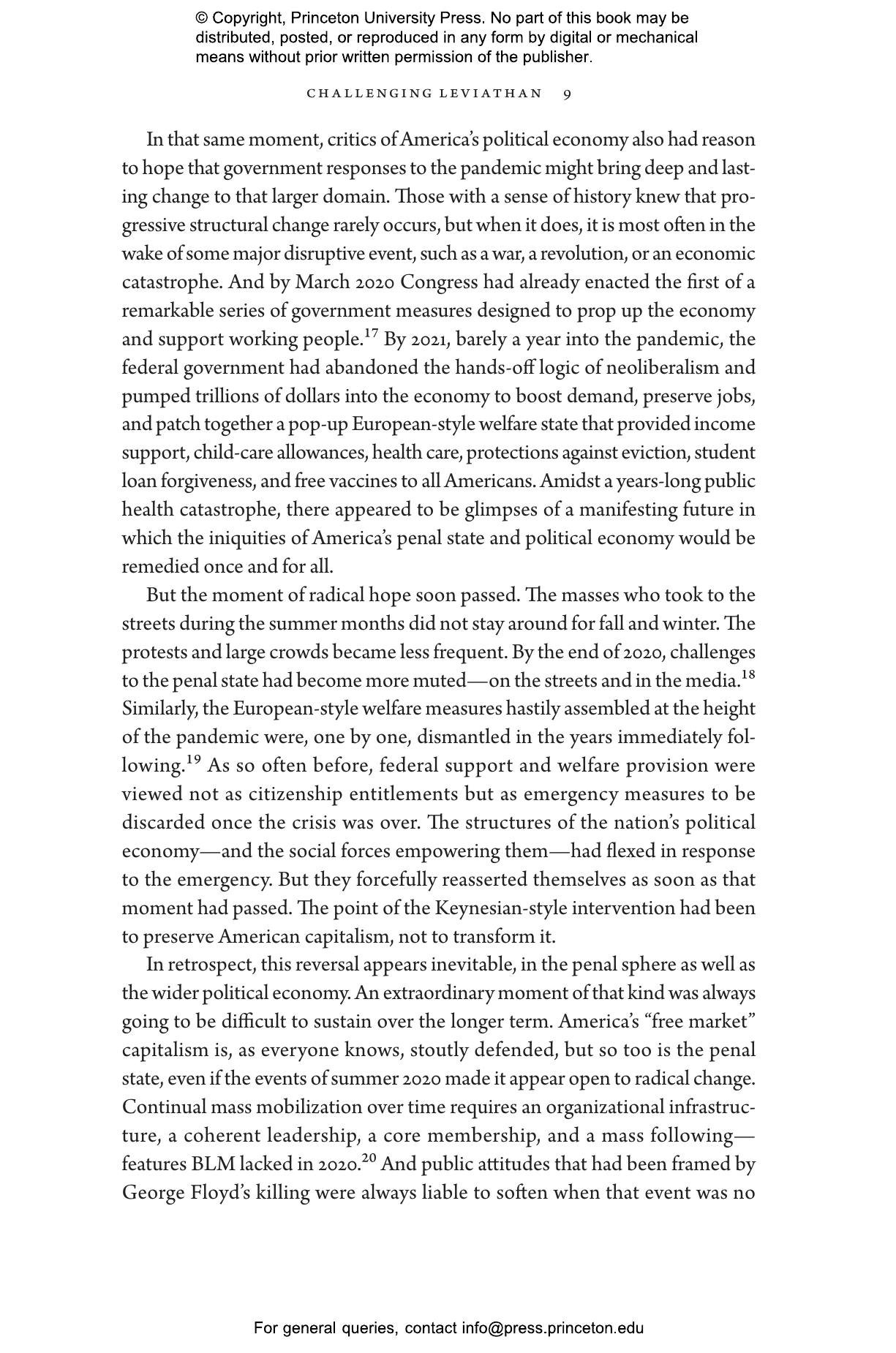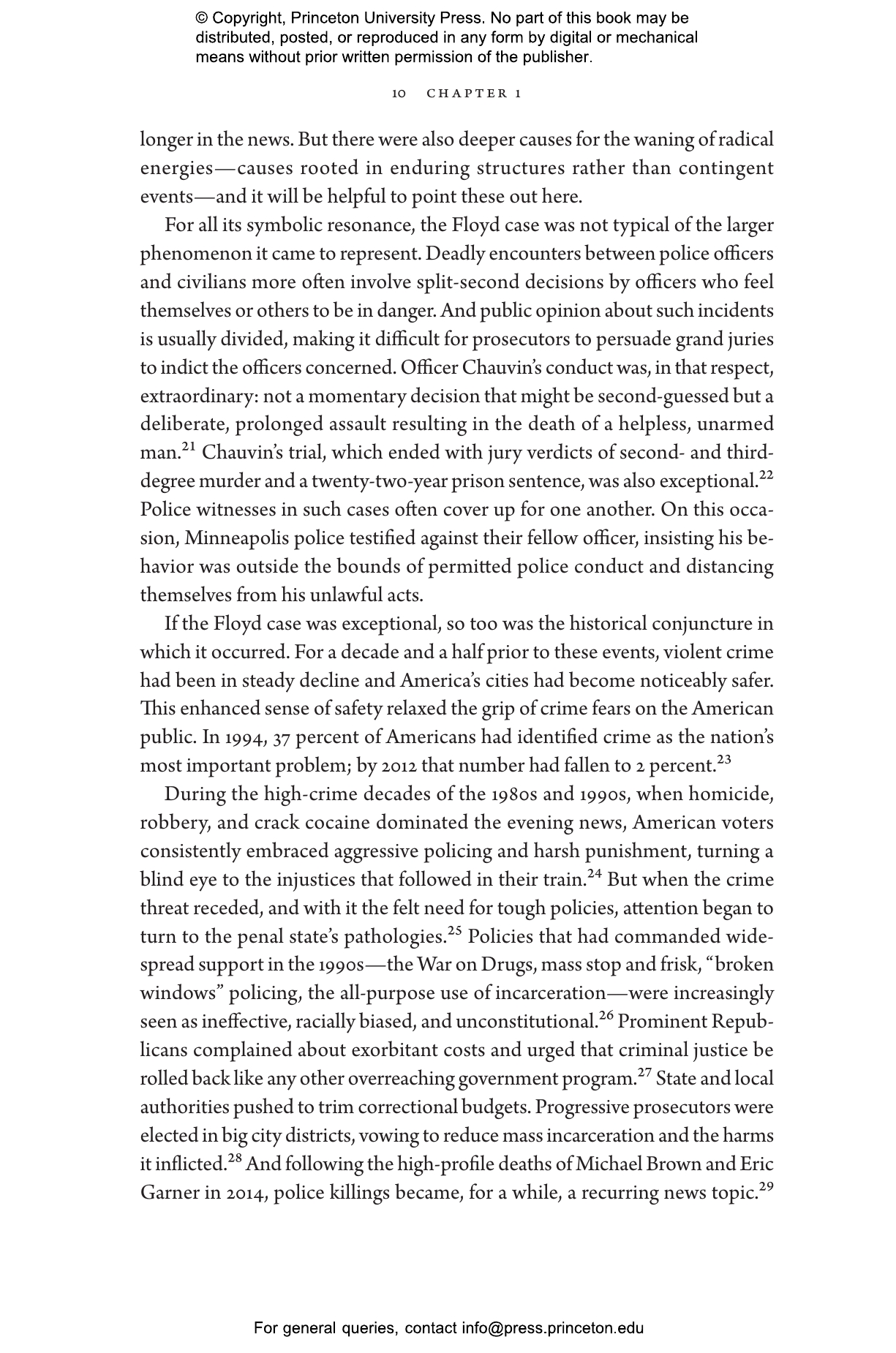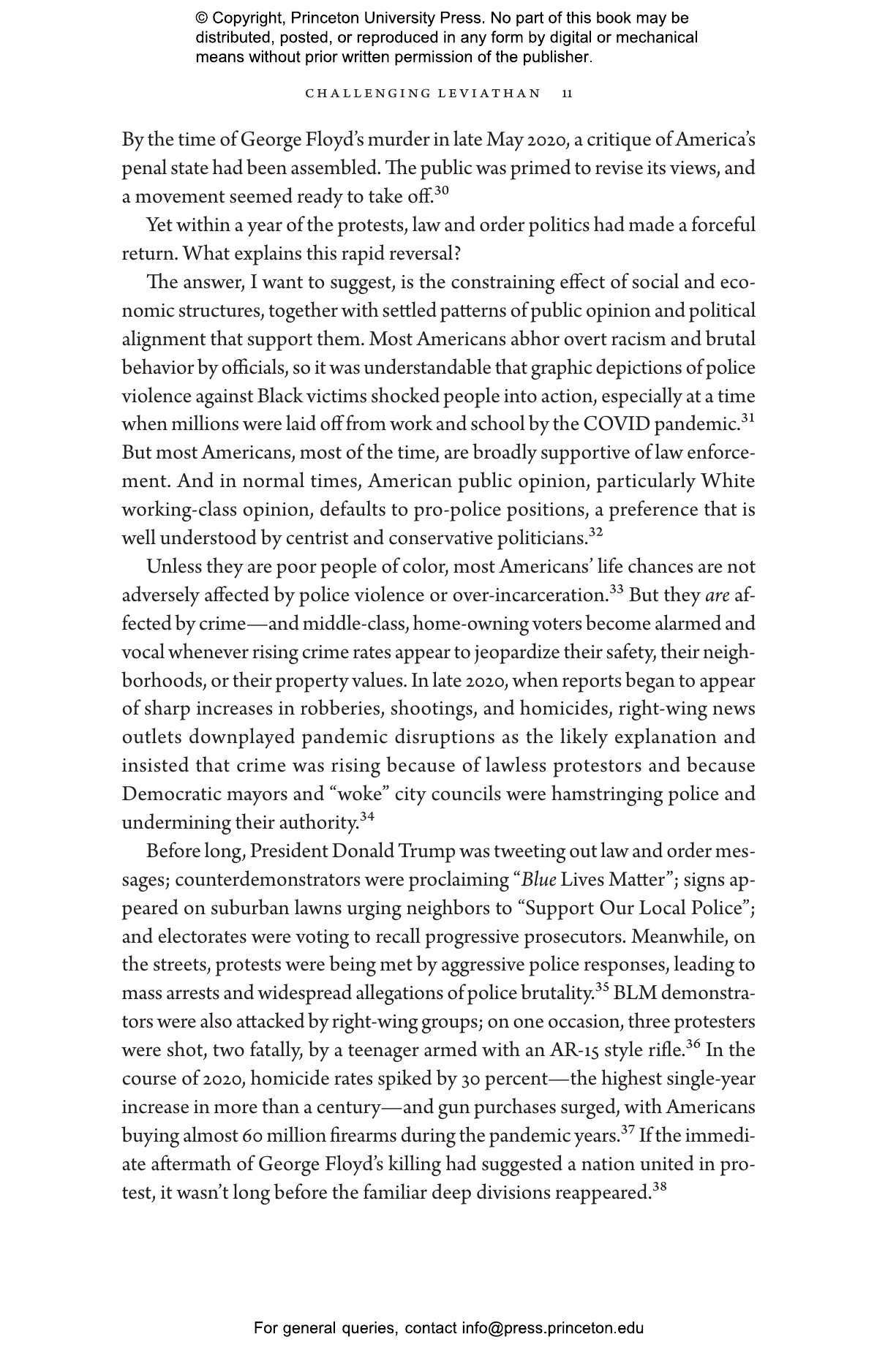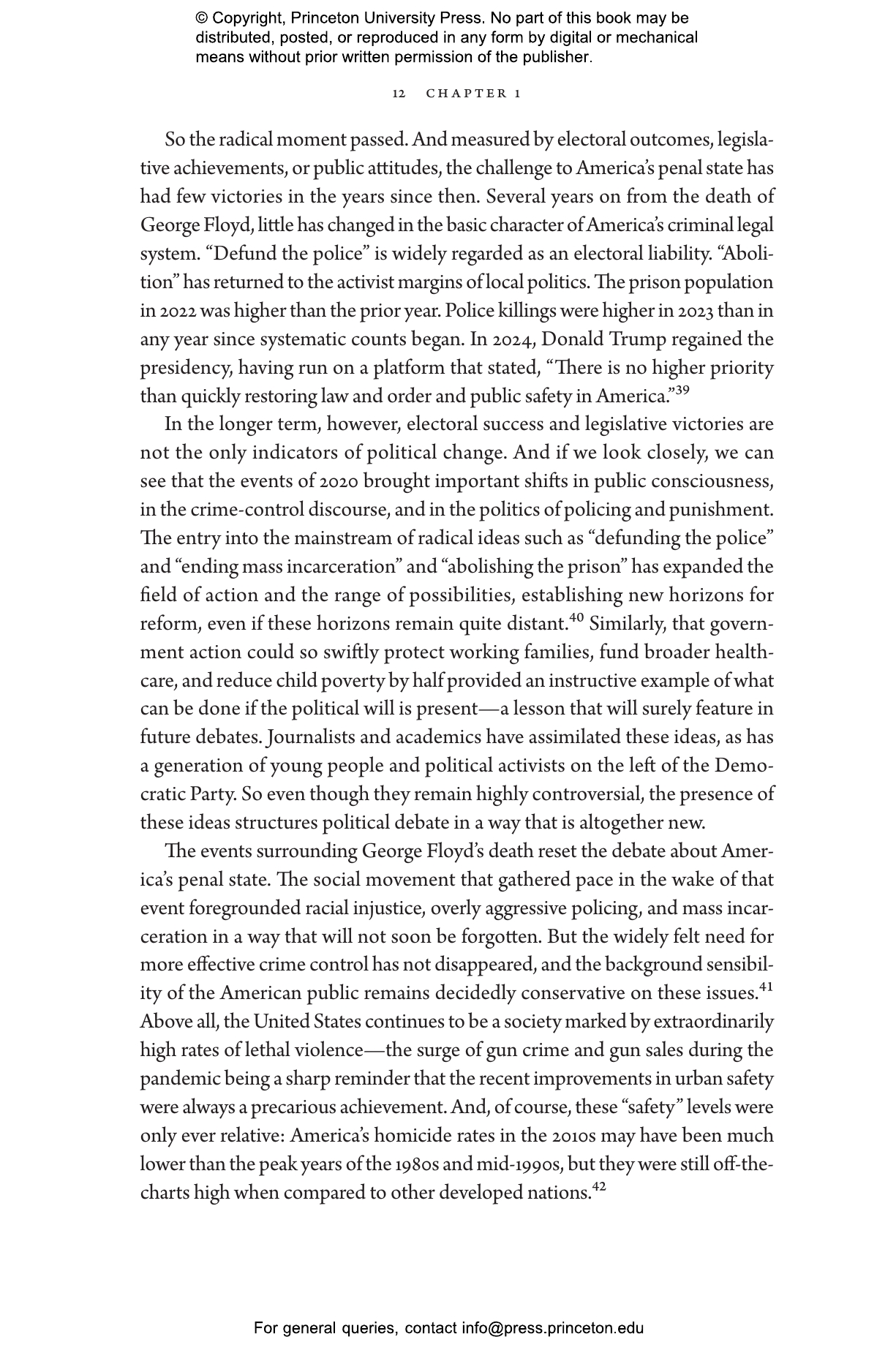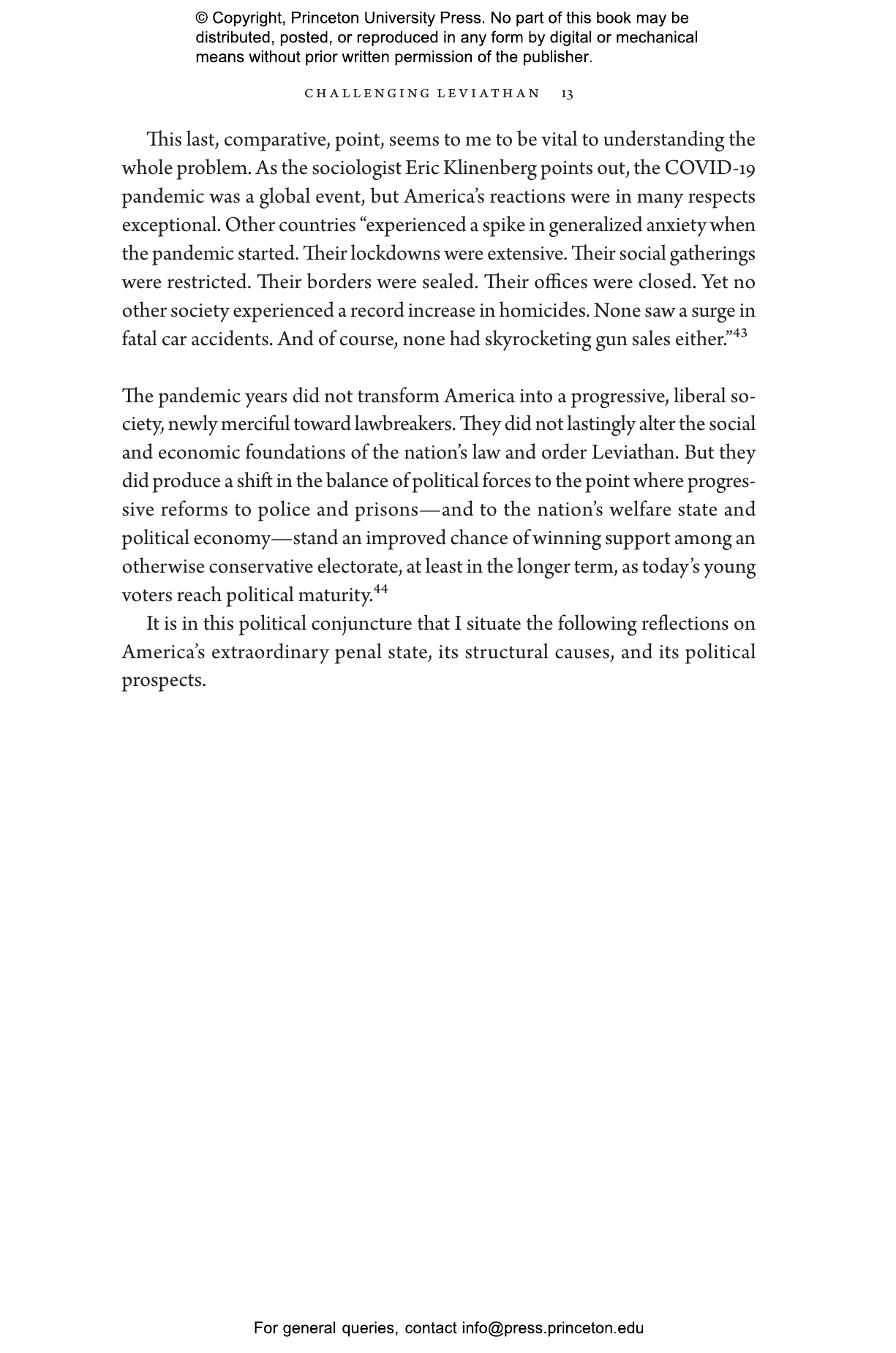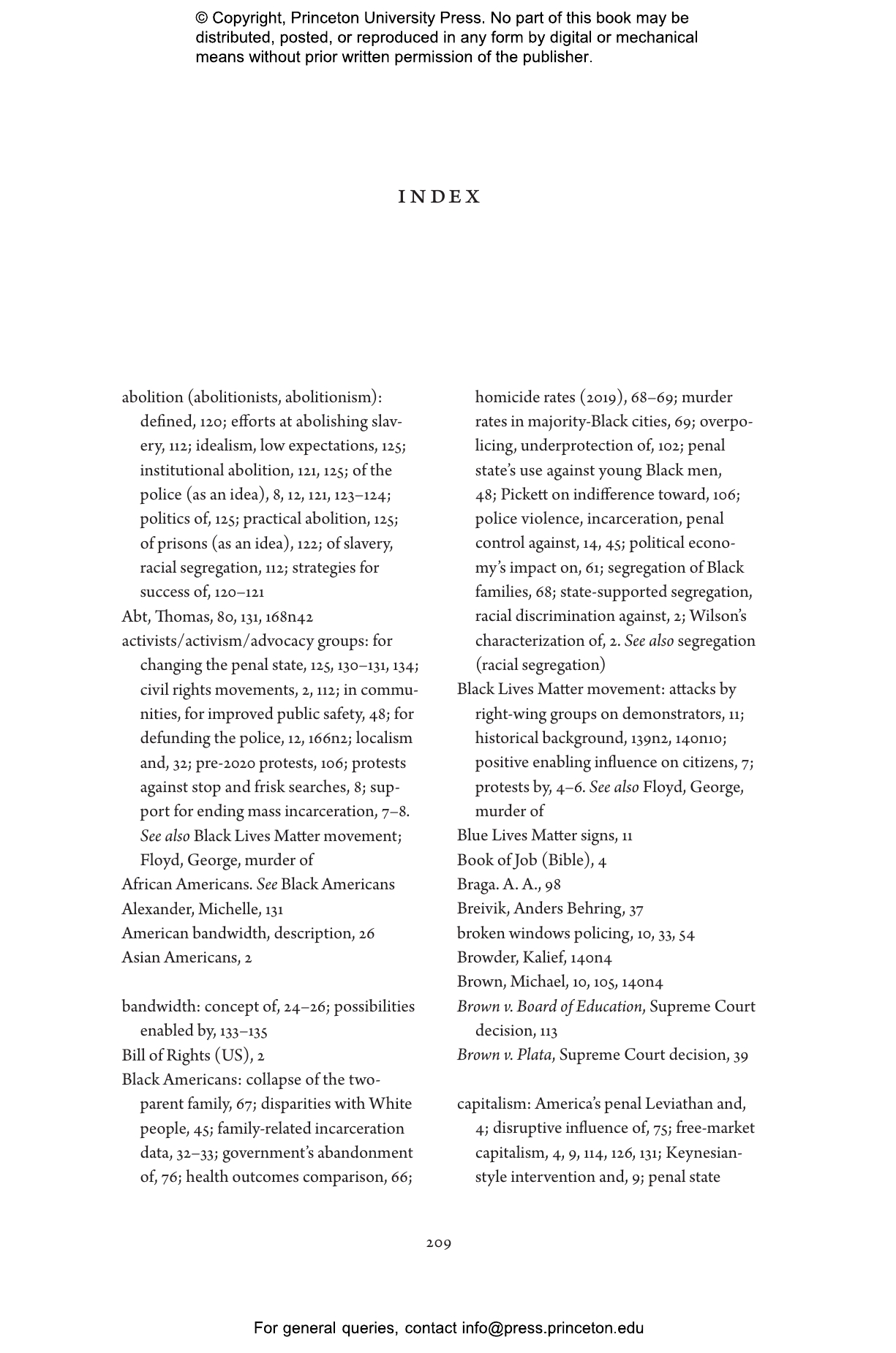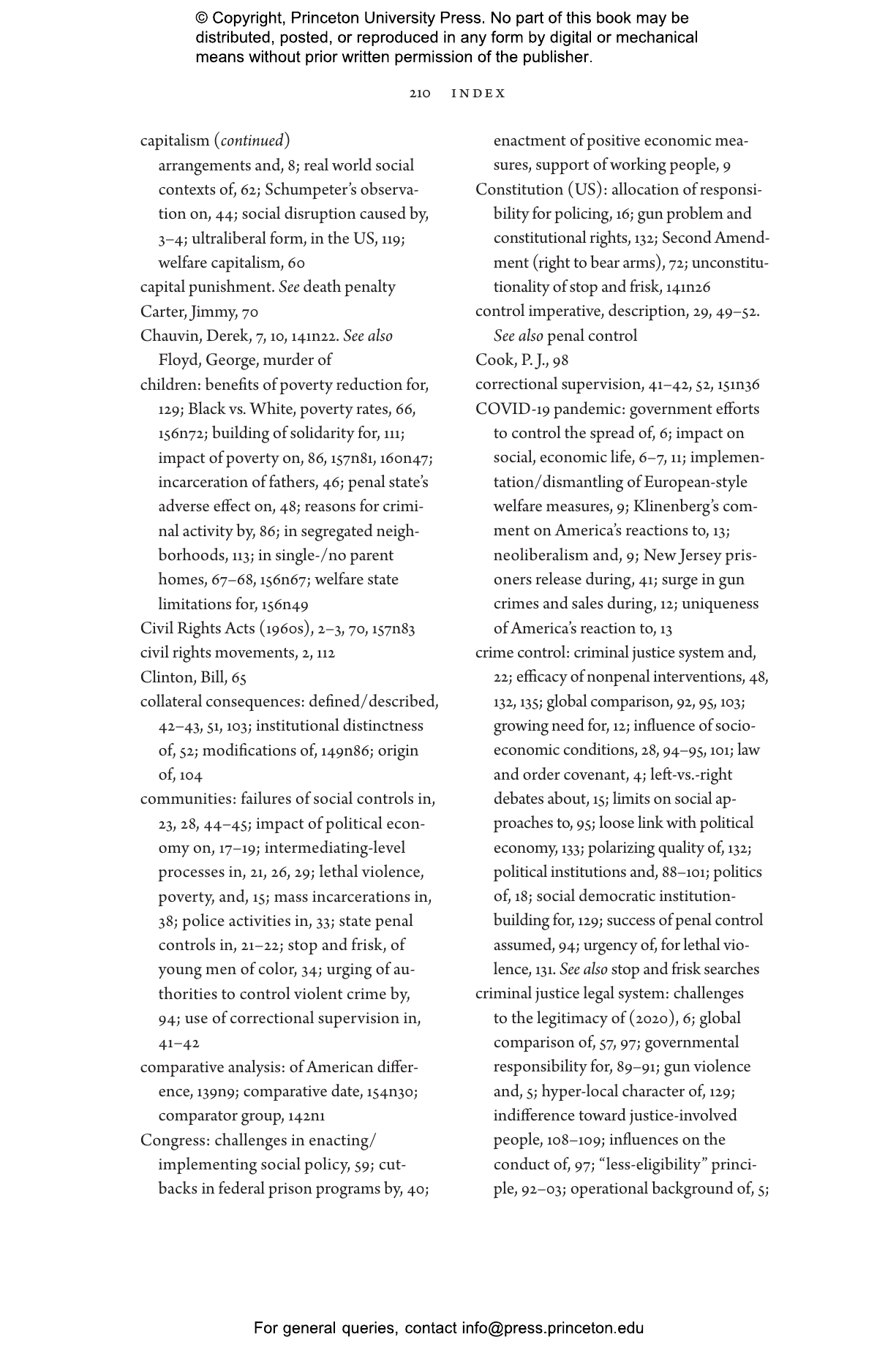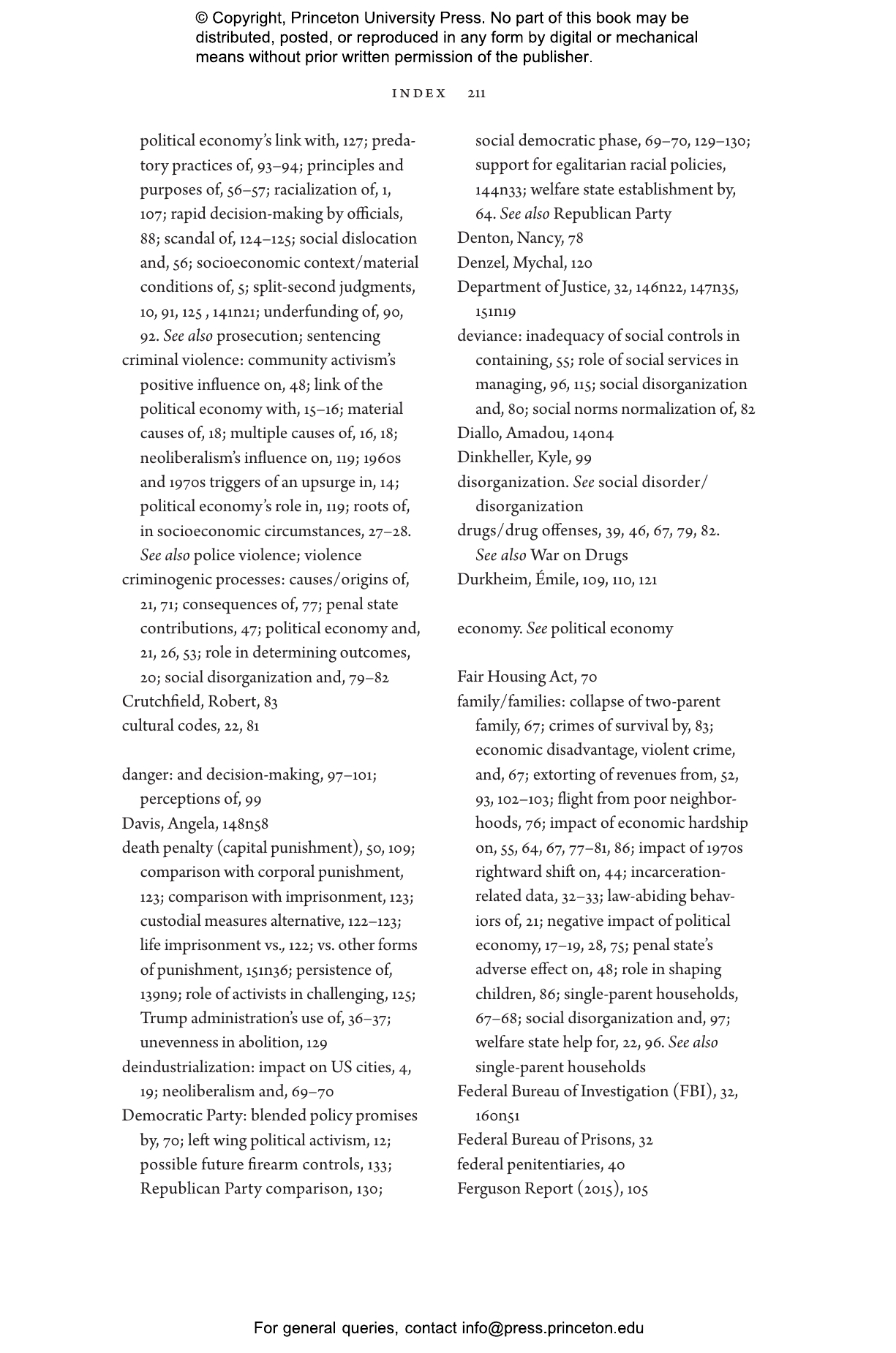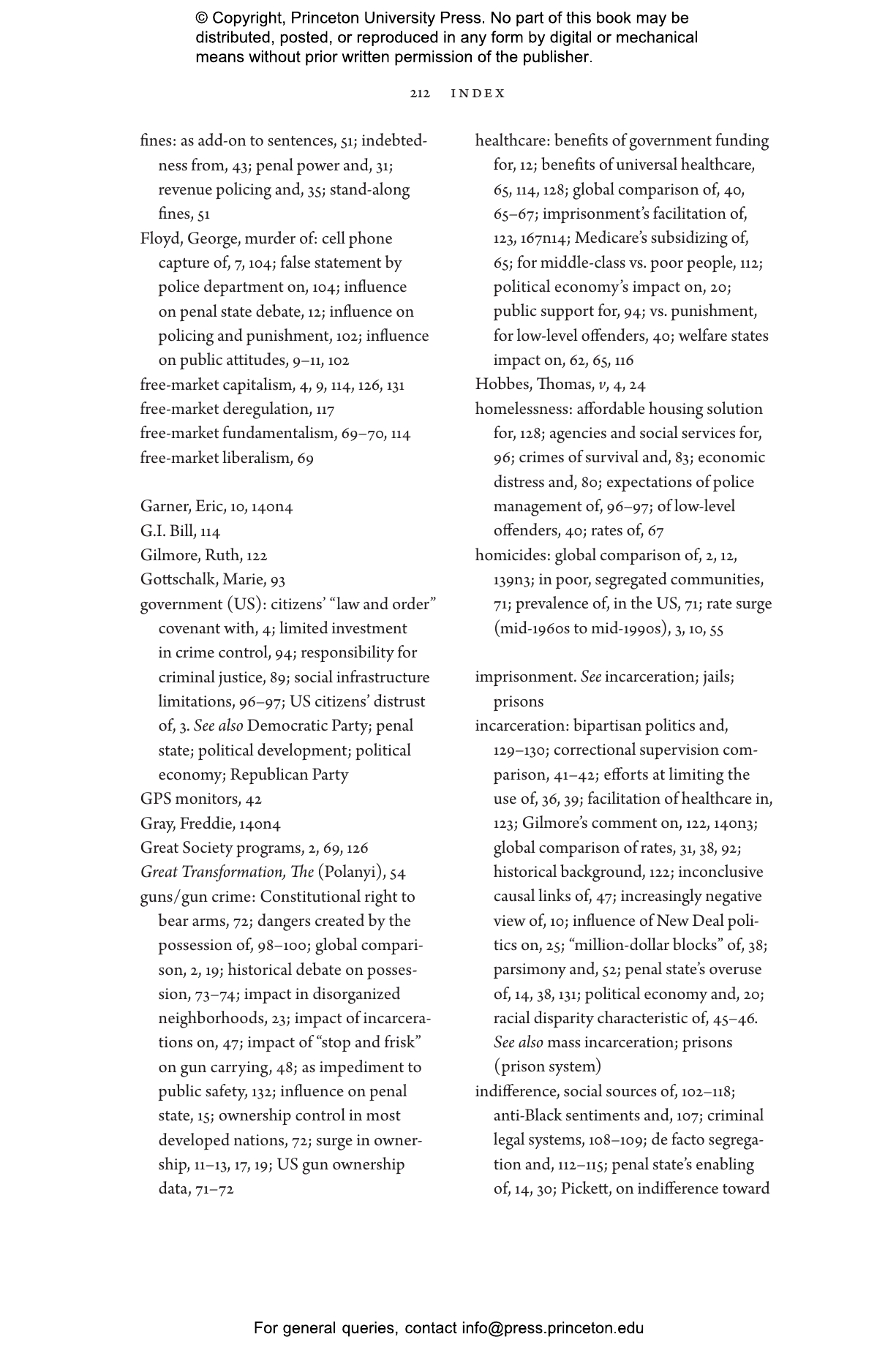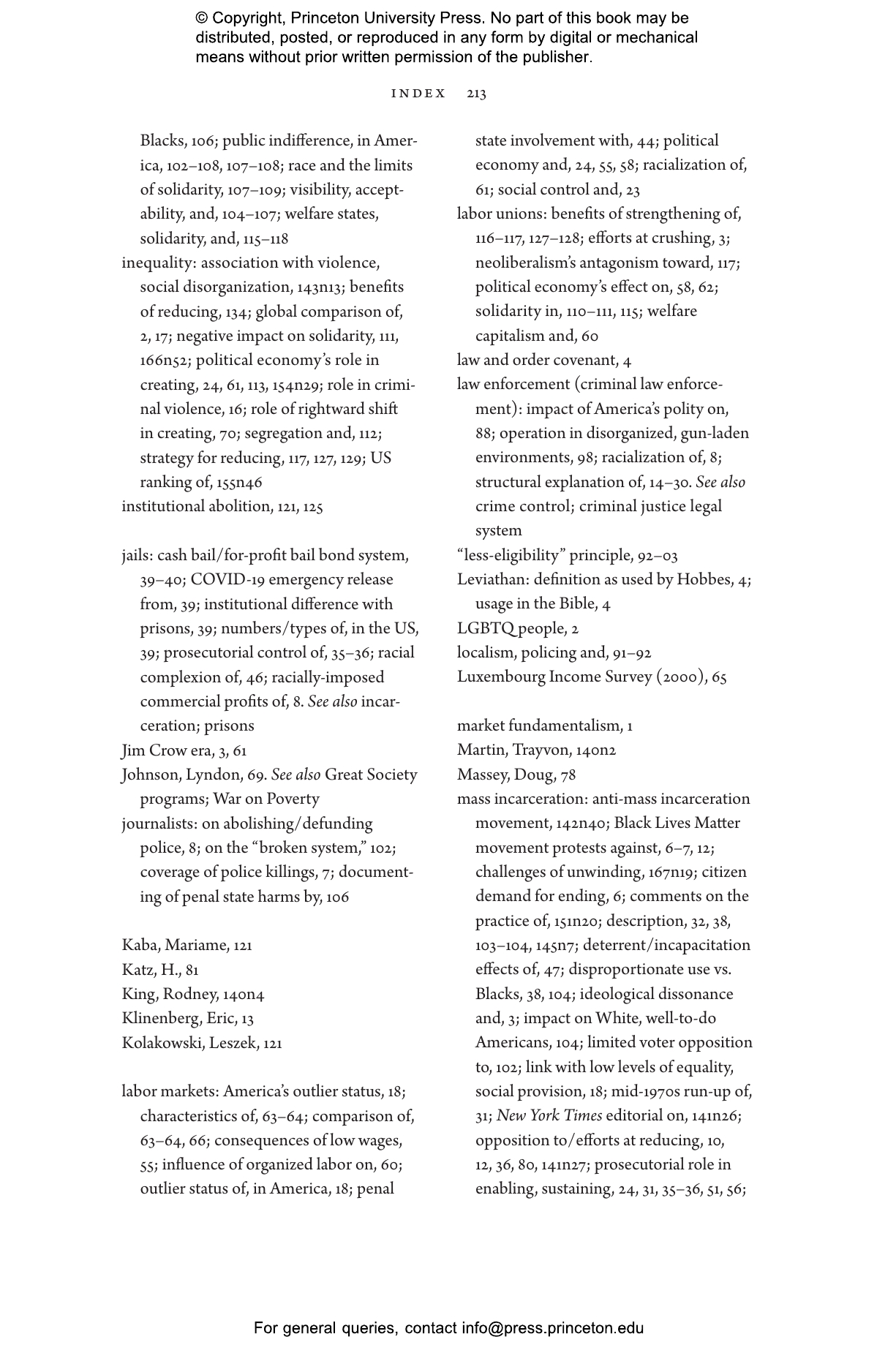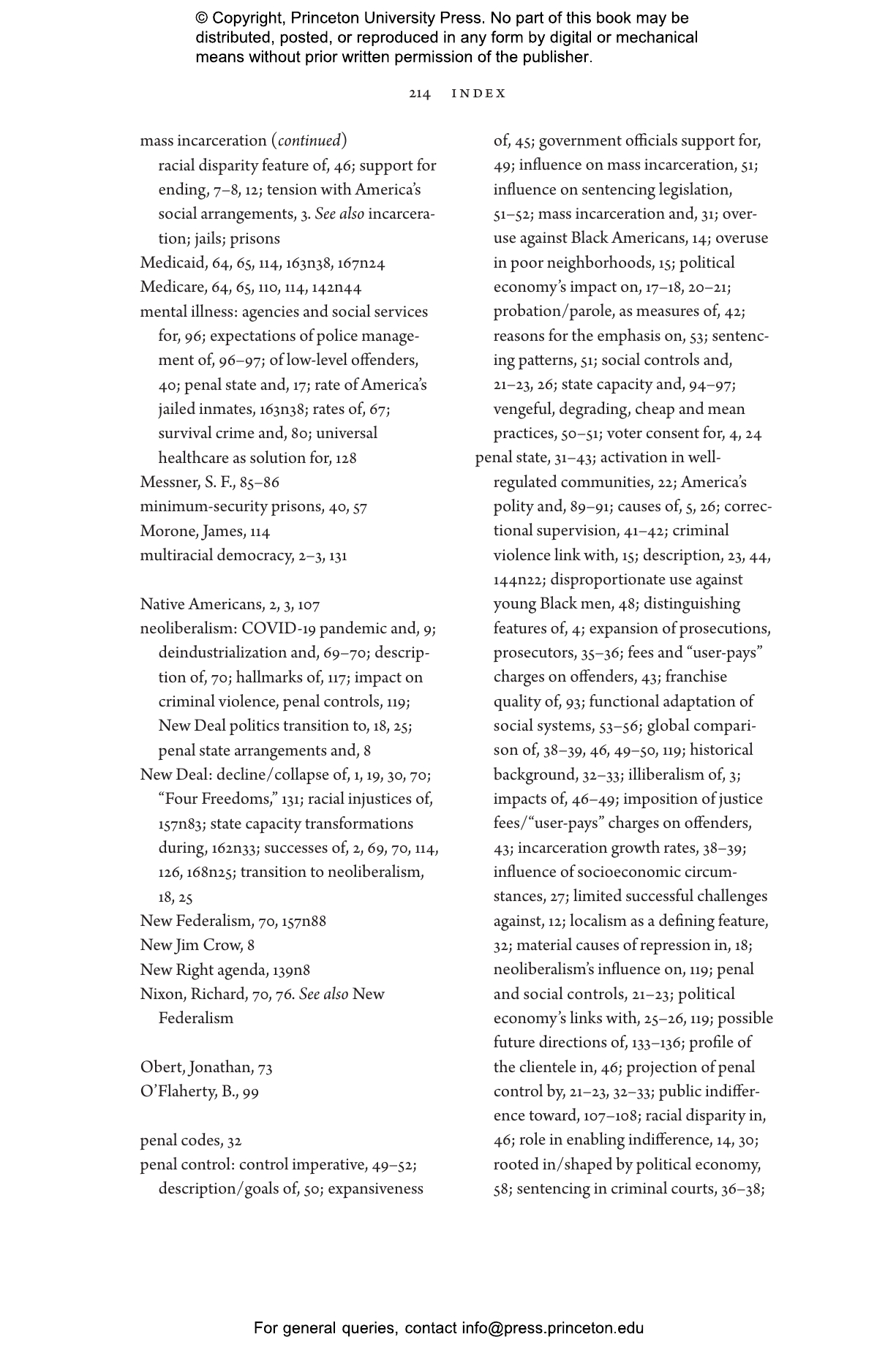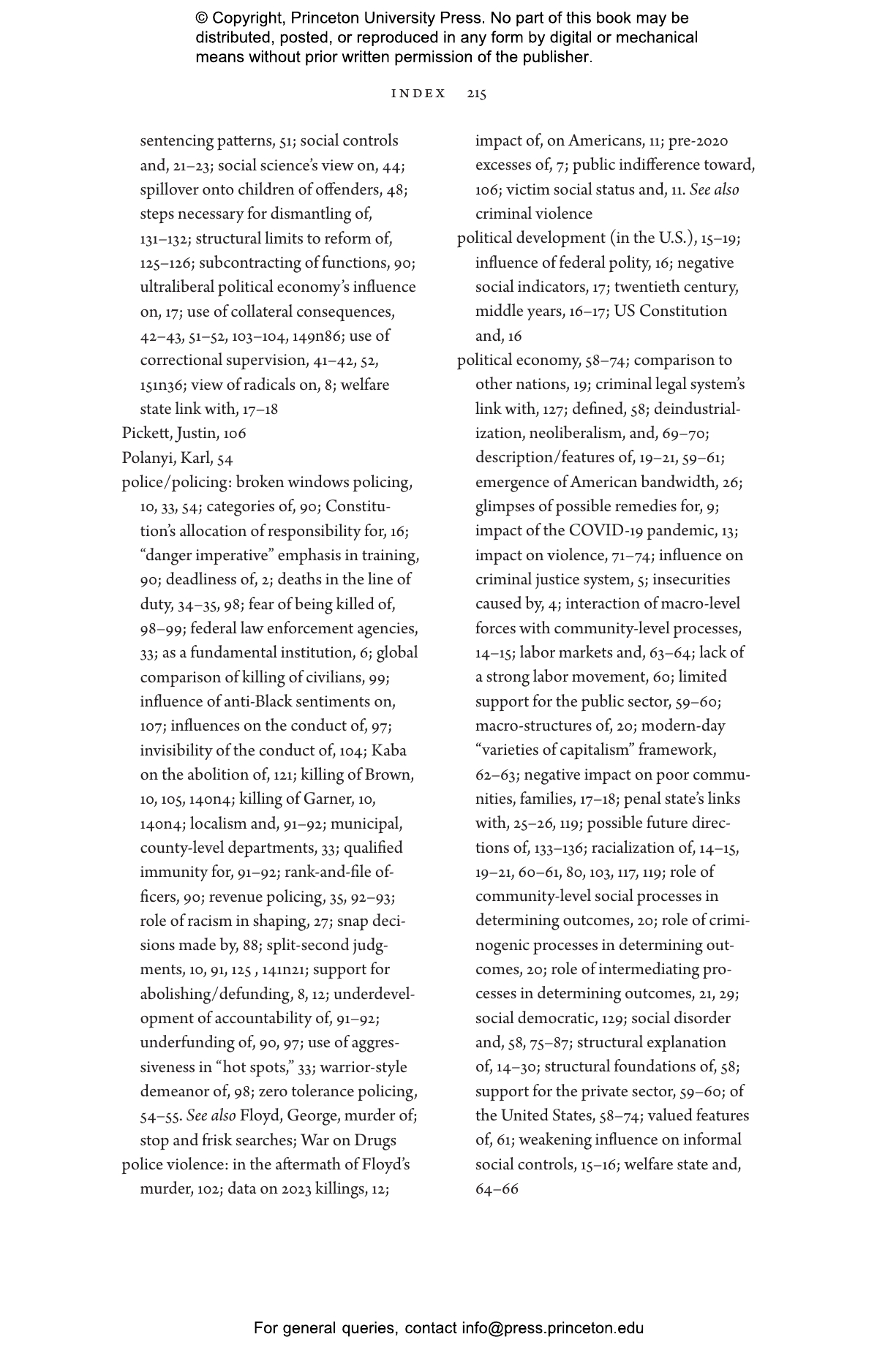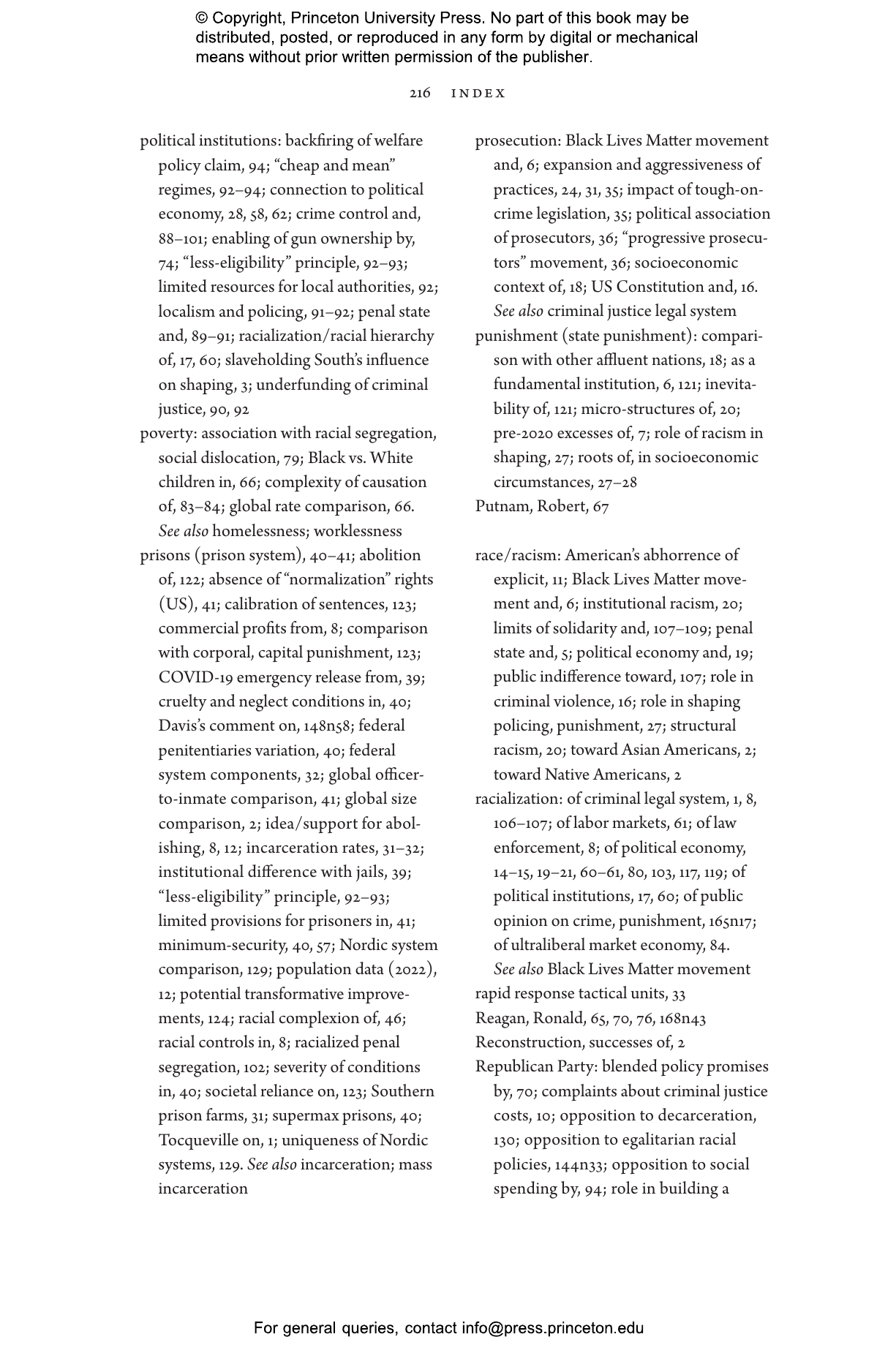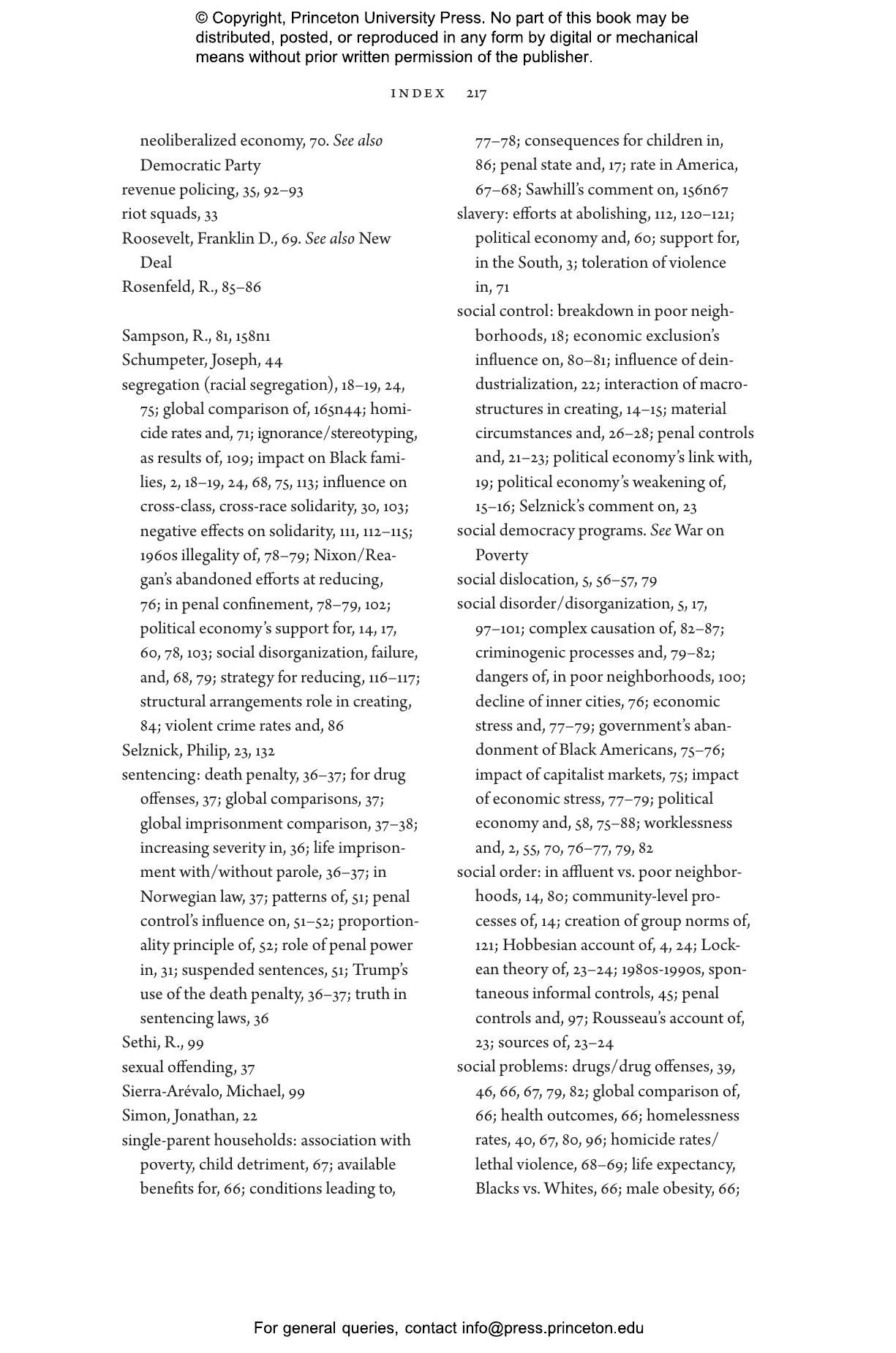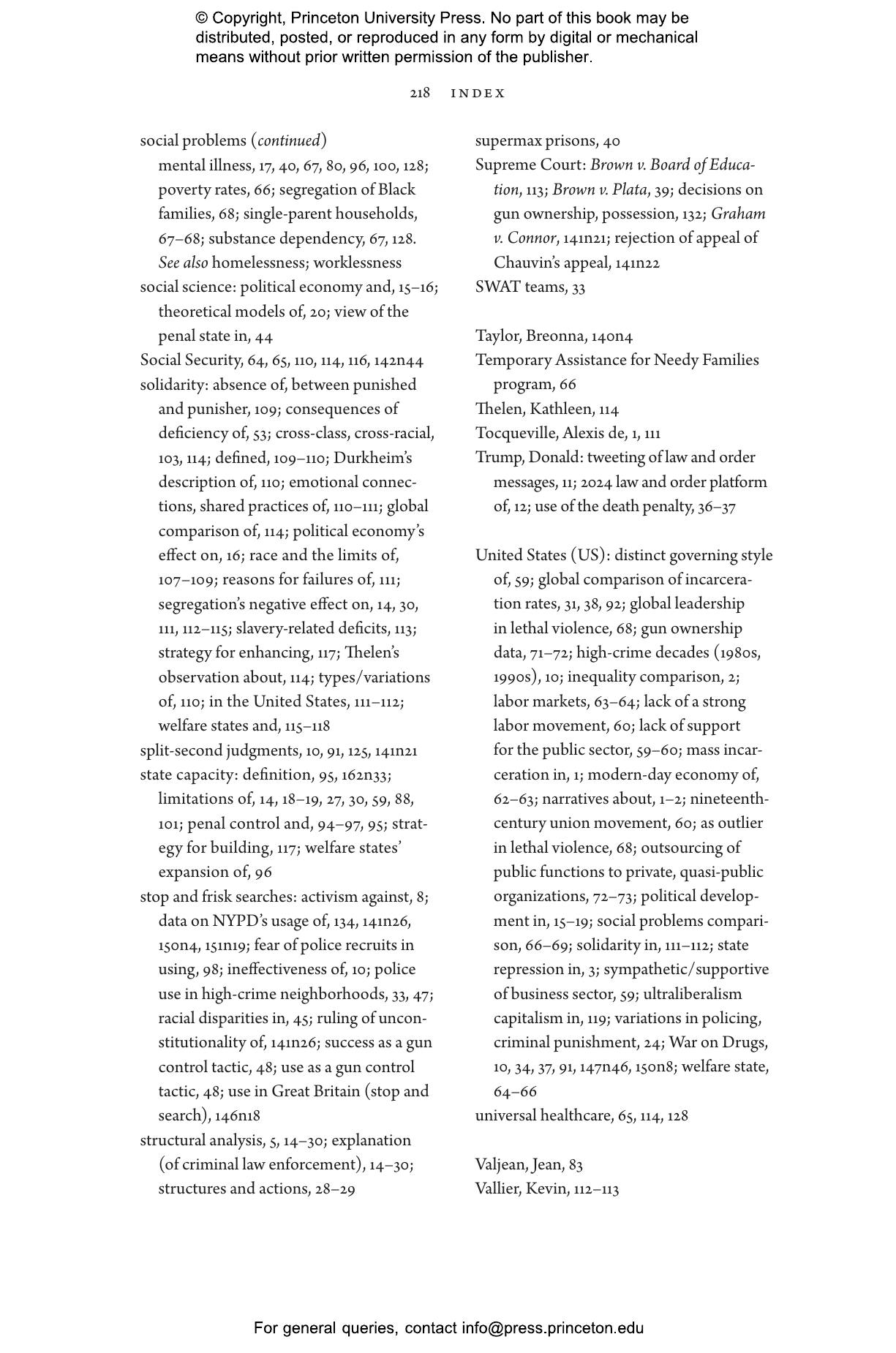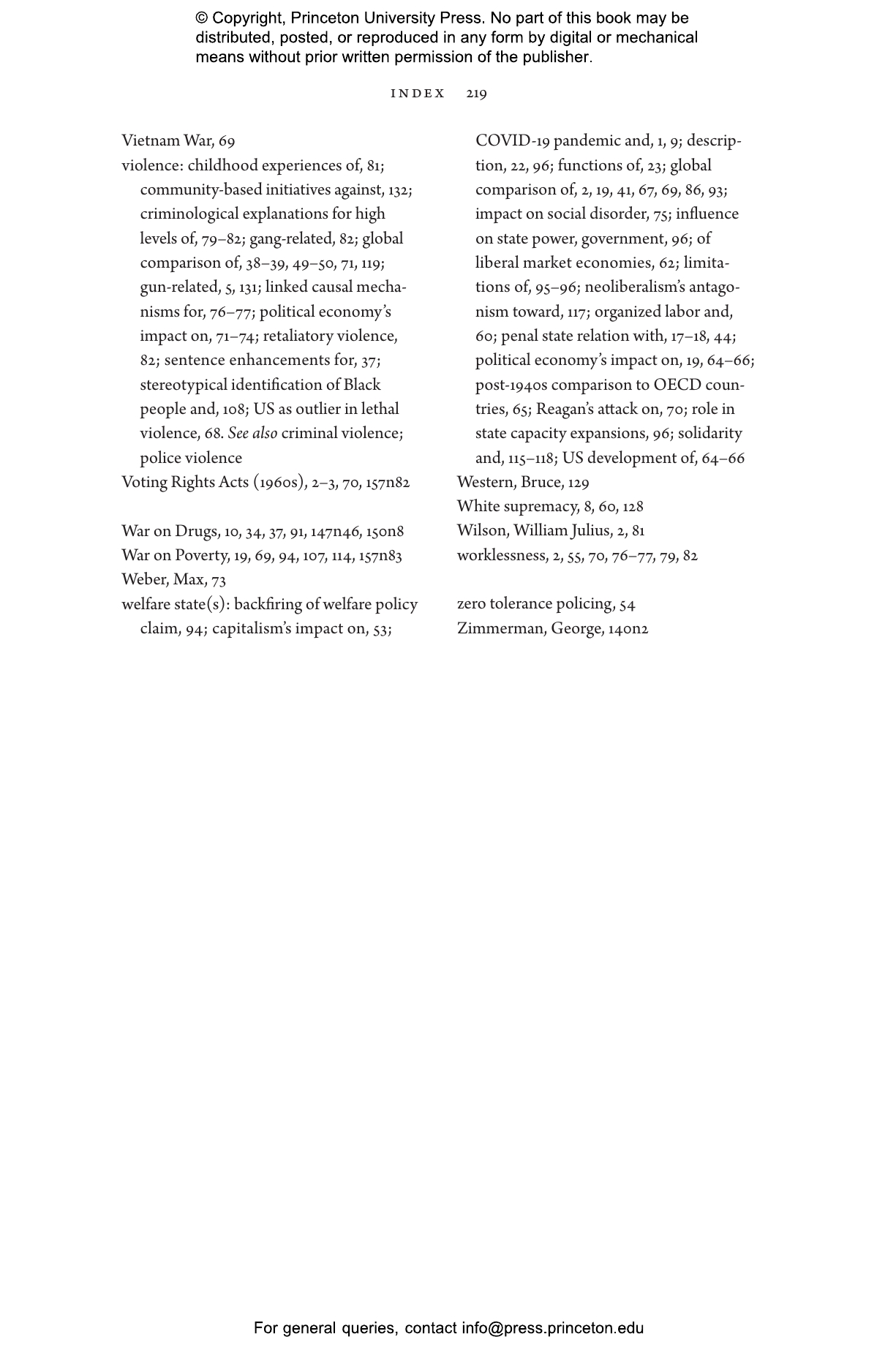How could America, that storied land of liberty, be home to mass incarceration, police killings, and racialized criminal justice? In Law and Order Leviathan, David Garland explains how America’s racialized political economy gives rise to this extraordinary outcome.
The United States has long been an international outlier, with a powerful business class, a weak social state, and an exceptional gun culture. Garland shows how, after the 1960s, American-style capitalism disrupted poor communities and depleted social controls, giving rise to violence and social problems at levels altogether unknown in other affluent nations. Aggressive policing and punishment became the default response.
Marshalling a wealth of evidence, Garland shows that America lags behind comparable nations in protections for working people. He identifies the structural sources of America’s penal state and the community-level processes through which political economy impacts crime and policing. He argues that there is nothing paradoxical in America’s reliance on coercive state controls; the nation’s vaunted liberalism is largely an economic liberalism devoted to free markets and corporate power rather than to individual dignity and flourishing. Fear of violent crime and distrust of others ensure public support for this coercive Leviathan; racism enables indifference to its harms.
America’s carceral regime will remain an outlier until America’s economy is structurally transformed. And yet, Garland argues, there is a path to reduced violence and significant penal reform even in the absence of structural change. Law and Order Leviathan sets out a powerful theory of the relation between political economy and crime control and a realistic framework for pursuing progressive change.
David Garland is the Arthur T. Vanderbilt Professor of Law and Professor of Sociology at New York University and an Honorary Professor at the University of Edinburgh. He is the author of The Culture of Control; Peculiar Institution: America’s Death Penalty in an Age of Abolition; The Welfare State: A Very Brief Introduction; and other books.
"[Law and Order Leviathan's] ambitious scale is matched by the range of data points it incorporates. . . . One of the most provocative and grounded perspectives on American penal policy in the contested contemporary landscape."—Isaac Randel, Foreword Reviews
"[An] intriguing study. . . . Through comparative examples to France, Canada, and other countries, [Garland] persuasively makes his case for America’s violent exceptionalism. The result is a striking challenge to both conservative and liberal perspectives on crime and policing."—Publishers Weekly
“Since Americans are not the world’s worst people, why do we have the world’s largest prison system? David Garland tackles this vexing question with characteristic brilliance and insight in Law and Order Leviathan. Whether you agree or disagree, the provocative argument presented here cannot be ignored.”—James Forman, Jr., Pulitzer Prize–winning author of Locking Up Our Own: Crime and Punishment in Black America
“With precision and clarity, David Garland shows how America’s outlier penal state emerged from a political economy that sows the seeds of violence and poverty in America’s most disadvantaged neighborhoods. Political economy is not entirely destiny, however, as Law and Order Leviathan soberly assesses the prospects of an American society that is far safer and radically less punitive.”—Bruce Western, Russell Sage Foundation
“Garland has written a powerful and illuminating analysis of America’s unique system of policing and punishment. A brilliant account of America’s gargantuan penal state, it is an essential study of America’s troubled system of criminal justice.”—Jerome Karabel, University of California, Berkeley
“David Garland has written the definitive account of why the United States stands alone among the developed nations in its levels of violence, incarceration, and penal control. His book forces us to look deeper, toward the social divisions and systems of racial exclusion that underlie the Law and Order Leviathan. This is an extraordinary book.”—Patrick Sharkey, author of Uneasy Peace: The Great Crime Decline, the Renewal of City Life, and the Next War on Violence
“Law and Order Leviathan offers a masterful inquiry into the peculiar political economy of the United States, exploring how the nation’s tolerance for concentrated disadvantage, racial inequality, and a weak safety net undermines its social order. David Garland offers hope by highlighting how local interventions can create a safer and less punitive society in the meantime, providing a compelling and nuanced examination of America’s outlier status.”—Robert J. Sampson, Harvard University


